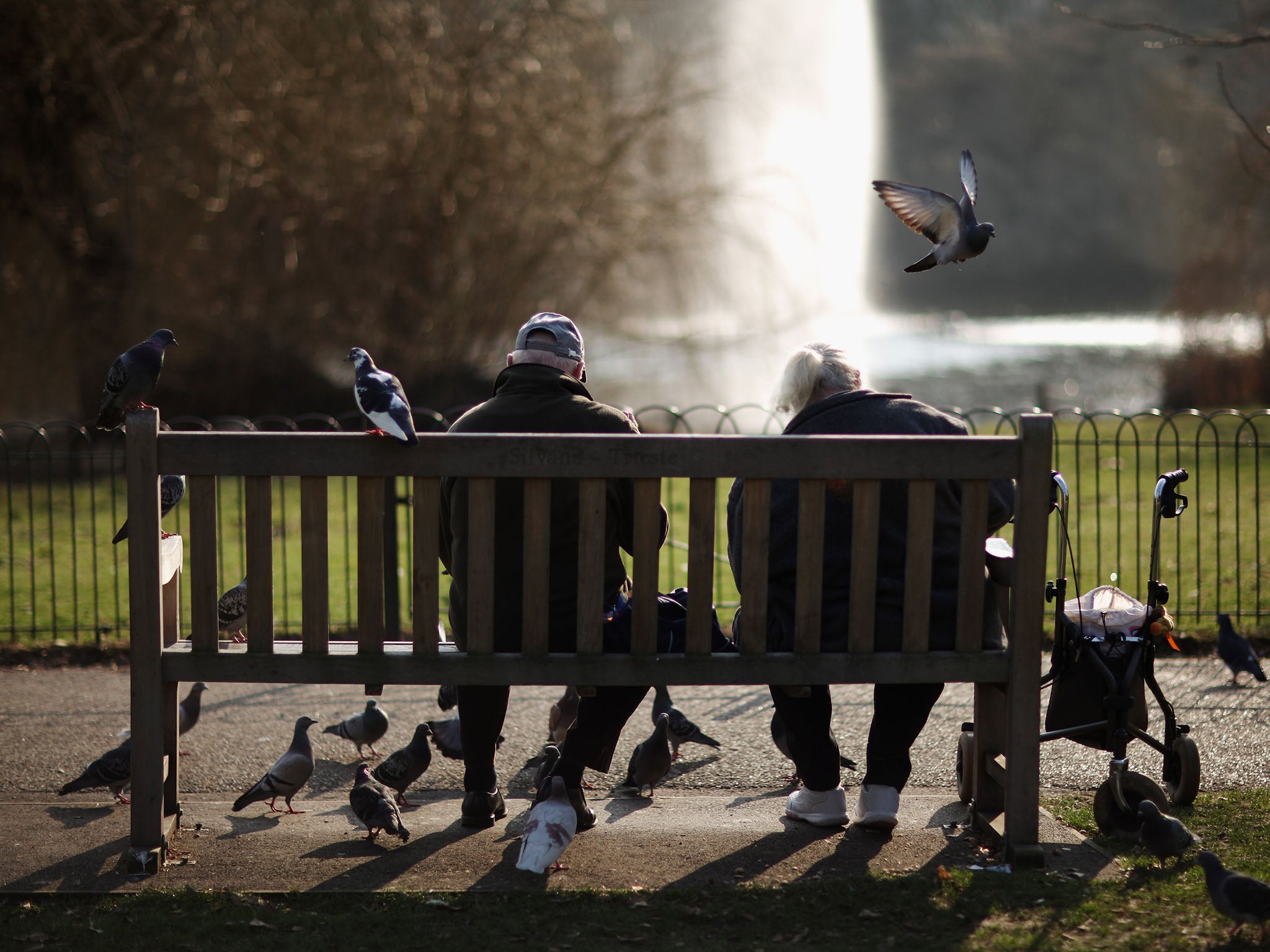Birdbrained new law could make feeding pigeons a criminal offence
Councils condemned for exploiting powers to create ‘bizarre’ new crimes

Your support helps us to tell the story
From reproductive rights to climate change to Big Tech, The Independent is on the ground when the story is developing. Whether it's investigating the financials of Elon Musk's pro-Trump PAC or producing our latest documentary, 'The A Word', which shines a light on the American women fighting for reproductive rights, we know how important it is to parse out the facts from the messaging.
At such a critical moment in US history, we need reporters on the ground. Your donation allows us to keep sending journalists to speak to both sides of the story.
The Independent is trusted by Americans across the entire political spectrum. And unlike many other quality news outlets, we choose not to lock Americans out of our reporting and analysis with paywalls. We believe quality journalism should be available to everyone, paid for by those who can afford it.
Your support makes all the difference.A new law that allows councils to ban activities in public spaces is leading to “bizarre new criminal offences”, which could see homeless people, buskers and people who feed pigeons prosecuted.
The law is said to have widespread public support but campaigners against heavy regulation say it is confusing and will turn town or city centres into “no-go zones”.
The Manifesto Club says the elderly, young people, buskers and homeless people could be deemed criminals as councils and other authorities introduce a “patchwork of criminal law” as part of the Anti-Social Behaviour, Crime and Policing Act.
Authorities can use public spaces protection orders (PSPOs) to ban certain activities, the group says.
It highlights areas where certain people are banned from retail parks and housing blocks, while begging and having open containers of alcohol are deemed criminal offences in some areas.
But authorities say the new laws – designed to restrict anti-social behaviour and improve quality of life for residents – appear to be working.
Josie Appleton, director of the Manifesto Club, said: “These powers are so broad that they allow councils to ban pretty much anything.
“The result is a patchwork of criminal law where something is illegal in one town but not in the next, or in one street but not the next.
“This makes it hard for the public to know what is criminal and what is not. These orders will turn town and city centres into no-go zones for homeless people, buskers, old ladies feeding pigeons or anyone else whom the council views as ‘messy’.
“It is astonishing that in the 21st century you could be punished for the crime of selling a lucky charm, ‘loitering’, or failing to leave a retail park within 20 minutes. This looks like a return to the meddling and moralism of 19th-century by-laws.”
In Colchester it is a crime to drive into a retail park after 6pm unless using the facilities. The council said it was necessary to prevent anti-social car meets. In Poole, people are not allowed to beg in certain areas and are required to clean up after their dog, under measures passed in December.
Oxford City Council has passed a PSPO prohibiting people under the age of 21 from entering a tower block, unless they are legally resident or visiting a relative in the block. The council has also proposed a series of restrictions on activities in the city centre, including bans on unlicensed busking, begging and pigeon feeding.
Last night an Oxford council spokeswoman defended the measures. “The unacceptable behaviour of a few has caused a great deal of misery and it is important that we tackle this problem robustly,” she said.
Another four PSPOs drawn up by councils around the country are currently out for public consultation and 19 are under consideration. These include potential bans on amplified music, rough sleeping, loitering around cash machines and the sale of lucky charms and heather.
Join our commenting forum
Join thought-provoking conversations, follow other Independent readers and see their replies
Comments